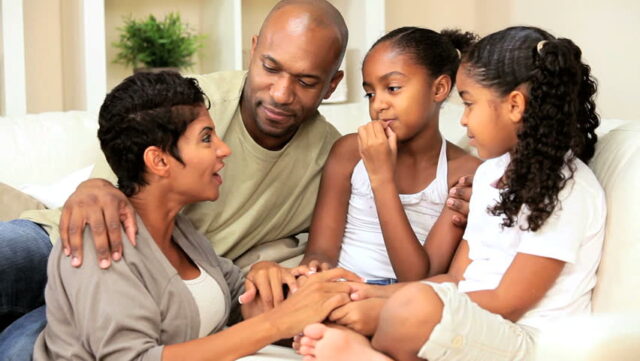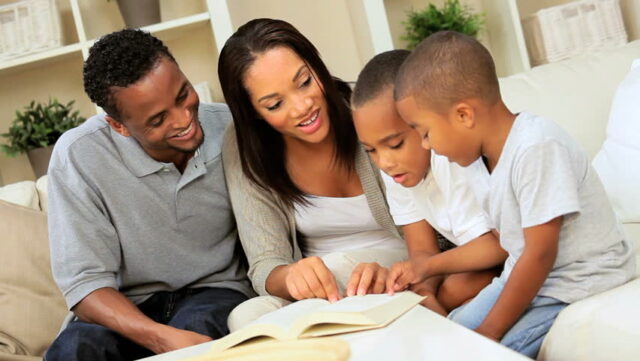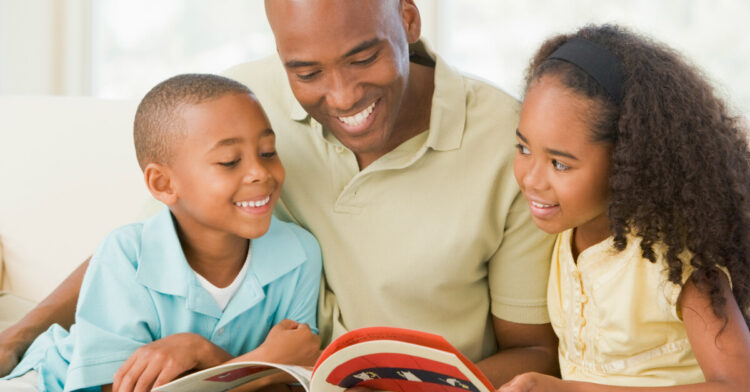The official 2020 presidential election happened two days ago and results are still coming in and there is no clear winner in sight. Adults have many questions, and of course, kids are going to have questions too.
“Our kids are already feeling so much stress and anxiety due to COVID-19; we shouldn’t be surprised at all if they have some big feelings around election day, too; they are already carrying so much,” said Bethany Robertson, the co-publisher and co-director of ParentsTogether, in an interview with Parents.com.
If you are wondering how to talk about the election with kids while the world waits to hear the official results, here are a few tips on how to help your kids, and maybe you too, digest what is going on.
1. Check in With Your Own Emotions
“As parents, we can first check ourselves,” says Robertson. “We know kids pick up on our own anxieties, so if you’re personally feeling pretty worked up, take a quick break if you can to let your heart rate slow down or your shoulders un-tense.” Remember, kids are sponges and mimic you when they do not really know what to do or how to respond.

2. Research Together And Talk About How Votes Are Counted
Research together and talk about how votes are counted to make sure that you both understand the process. Make sure that you explain to them that this year is a little different from others due to larger voter turnout and COVID-19. Let kids know that counts will take longer this year, and that is fine and also expected.
Kristin Rowe-Finkbeiner, the executive director and CEO of MomsRising, gives an example of how to explain this process to younger children in the same interview with Parents.com.
“Sometimes when we raise our hand in class to say what type of game we want to play at recess, it takes a while to tell all the people who have raised their hand,” she says. “Some people are wiggly, some people are raising their hands from behind. Some people may have gone to the restroom, and we’re waiting for them to get back. And we have to make sure that we count them so that everybody’s fair. What’s important here is to look for the helpers. Who’s helping to get votes counted? Who’s helping to expand justice and fairness? And who’s stepping up to support democracy?”

3. Listen to Their Concerns
As you have concerns, so do your children. Listen to their concerns and let them express themselves.
“The best way to make space for what kids need is to listen and hear them out,” says Robertson. “Often, we may be surprised by the assumptions they are making or what has them worried in the first place. Giving them a safe place to share those worries and concerns is a great start.”
“Allowing them to express themselves is always important—however your child likes to do that, whether it be by speaking, writing, drawing a story,” Crystal Bowyer, president and CEO of the National Children’s Museum, added to the discussion.
4. Share Your Own Reactions
Now that your children shared their concerns and thoughts, it’s time for you to share yours. Let your children know what you are thinking and how you feel about what is going on, so that they know that they are not alone.
“It’s also helpful for kids to know that they are not alone,” suggests Robertson. “You can say: ‘I’m thinking about this, too,’ or, ‘I wish we could know the outcome sooner, too.’ It may also help to give them the perspective that lots of kids are having similar thoughts; they are not alone.”

5. Reassure Kids That You Are There for Them
The longer we wait, the more we are starting to see things escalate such as protests and sporadic bouts of civil unrest. Seeing and hearing these things can be scary and unsettling for kids. Reassure them and let them know that you are they for them and the election process will be over soon. Most importantly, let them know that they are and will be safe and sound.
“For children who are especially anxious or frightened by the current political landscape, it can be especially helpful to let them know that you will do your very best to keep them safe and that your family will have each other no matter what happens,” says Robertson.







